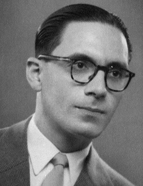

He joined the School of Arts and Humanities of the University of Coimbra as Second Assistant Lecturer (1957-1963 and 1969-1972). During these years, he taught various subjects: History of Portugal I and II, General History of Civilisation, History of the Portuguese Discoveries and Colonisation, and History of Geography. In the last few years, in particular, he devoted himself to the History of Brazil while ensuring the practical teaching of the Theory of History. This teaching overload must have delayed the preparation of his doctorate .
Despite this sort of dispersion, diplomatic history would be the axis around which LFA’s interests as a researcher centred, especially regarding the 18 th century, his favourite period. But endowed with a very strict academic discipline – demanding of himself an exhaustive review of the available materials whenever he wanted to deal with a subject – his output fell short of projects and promises. Although it cannot be considered small (five dozen books and articles), above all, in addition to clear, unadorned writing, none of these publications are without valuable scholarly notes and often have relevant documentation. These are not notes that expand on what was written in the main text but indications of sources and bibliographies presented with extreme care and thoroughness. As his students were well aware, his indications were never wrong and always referred to the best edition. And there were very few cases of books or publications he was not familiar with. He was extremely generous in providing help to colleagues and students in need of support or simply in need of a bibliographical reference to unblock deadlocks. Salvador Dias Arnaut, full of humour, would joke that he had a book that Ferrand had never heard of …
Another topic that attracted him to diplomatic history had to do with Poland. Given that he was a staunch (albeit discreet) Catholic, the resistance of Roman Catholic Poland to communist domination sparked his curiosity about the past of this distant country, which over time – although intermittently – had maintained some relations with Portugal. That is why, it can be surmised, he wrote six articles on the subject. On diplomatic aspects, of course. Four other articles are dedicated to Luís da Cunha (whose work he knew in depth and had been studying since 1948), and he announced to his friends that he intended to publish a selection of the diplomat’s Memórias da Paz de Utrecht . He also wanted to prepare an edition of the Testamento Político , whose editions he considered to be lacking, having written about it more than once.
This work is financed by national funds through FCT - Foundation for Science and Technology, I.P, in the scope of the projects UIDB/04311/2020 and UIDP/04311/2020.
